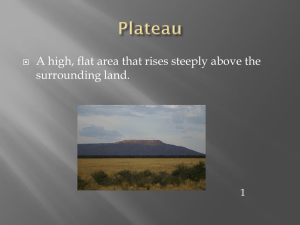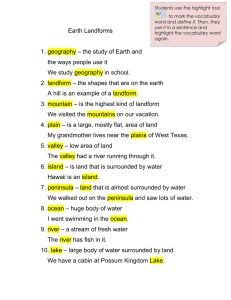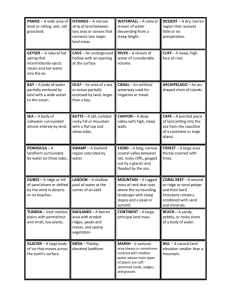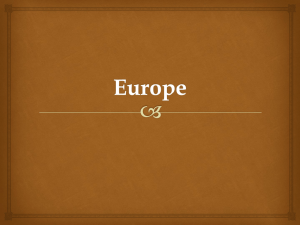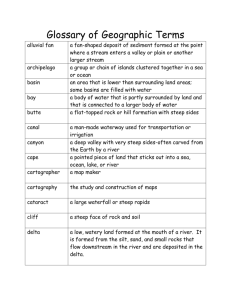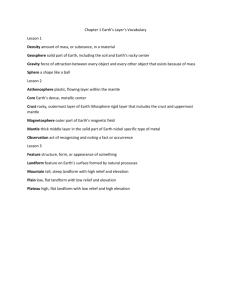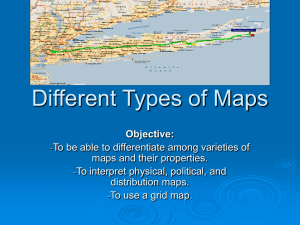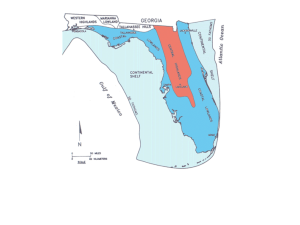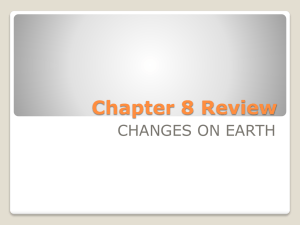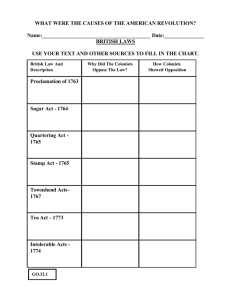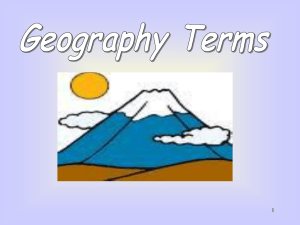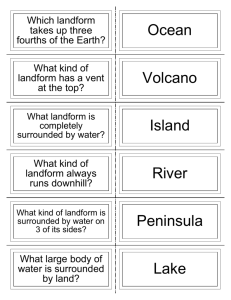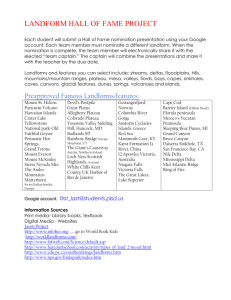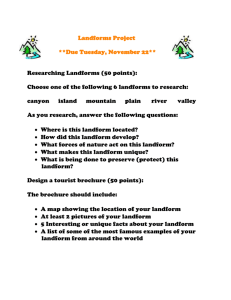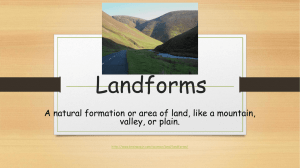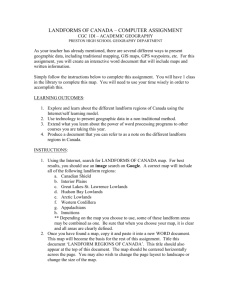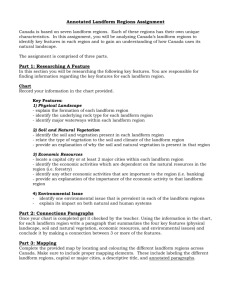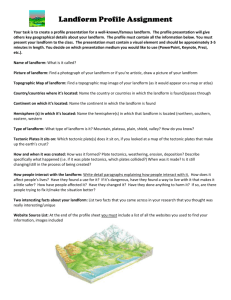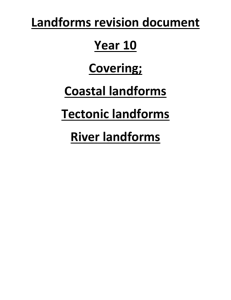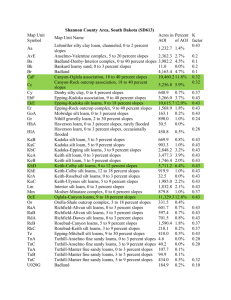Landforms
advertisement
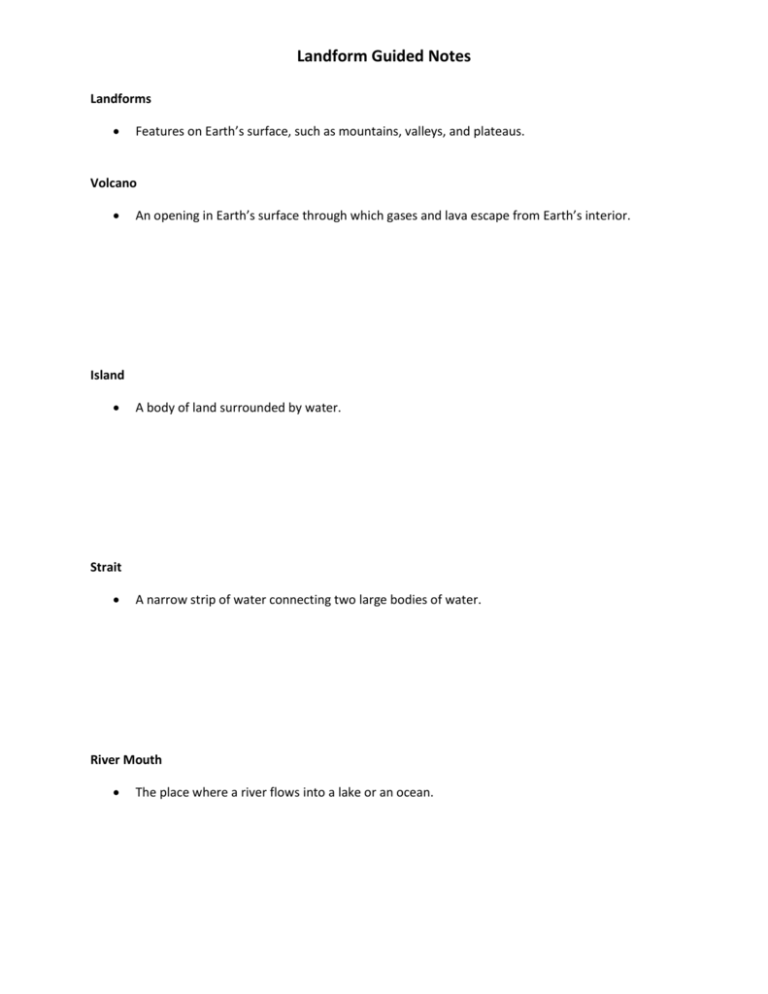
Landform Guided Notes Landforms Features on Earth’s surface, such as mountains, valleys, and plateaus. Volcano An opening in Earth’s surface through which gases and lava escape from Earth’s interior. Island A body of land surrounded by water. Strait A narrow strip of water connecting two large bodies of water. River Mouth The place where a river flows into a lake or an ocean. Landform Guided Notes Sea Level The level of the ocean’s surface, used as a reference point when measuring heights and depths on Earth’s surface. Cape A pointed piece of land extending into an ocean or a lake. Part of an ocean or a lake partially enclosed by land. Bay Harbor A sheltered area of water, deep enough for docking ships. Landform Guided Notes Marsh A soft, wet, low-lying, grassy area located between water and dry land. Delta A triangular area of land formed from deposits at the mouth of a river. Flood Plain Flat land alongside a river, formed by mud and silt deposited by floods. Swamp An area of land that is saturated by water. Landform Guided Notes Butte A raised, flat area of land with steep sides, smaller than a mesa. Oasis A spot of fertile land in a desert, supplied with water by a well of spring. Desert A dry area where few plants grow. Mountain A natural elevation of Earth’s surface with steep sides, higher than a hill. Landform Guided Notes Prairie A large, level area of grassland with few or no trees. Mesa A wide, flat topped mountain with steep sides larger than a butte. Steppe A wide, treeless plain. Valley Low land between hills or mountains. Glacier A large ice mass that moves slowly down a mountain or over land. Landform Guided Notes Cataract A large, powerful waterfall. Canyon A deep, narrow valley with steep sides. Cliff The steep, almost vertical edge of a hill, mountain, or plain. Plateau A broad, flat area of land higher than the surrounding land.
